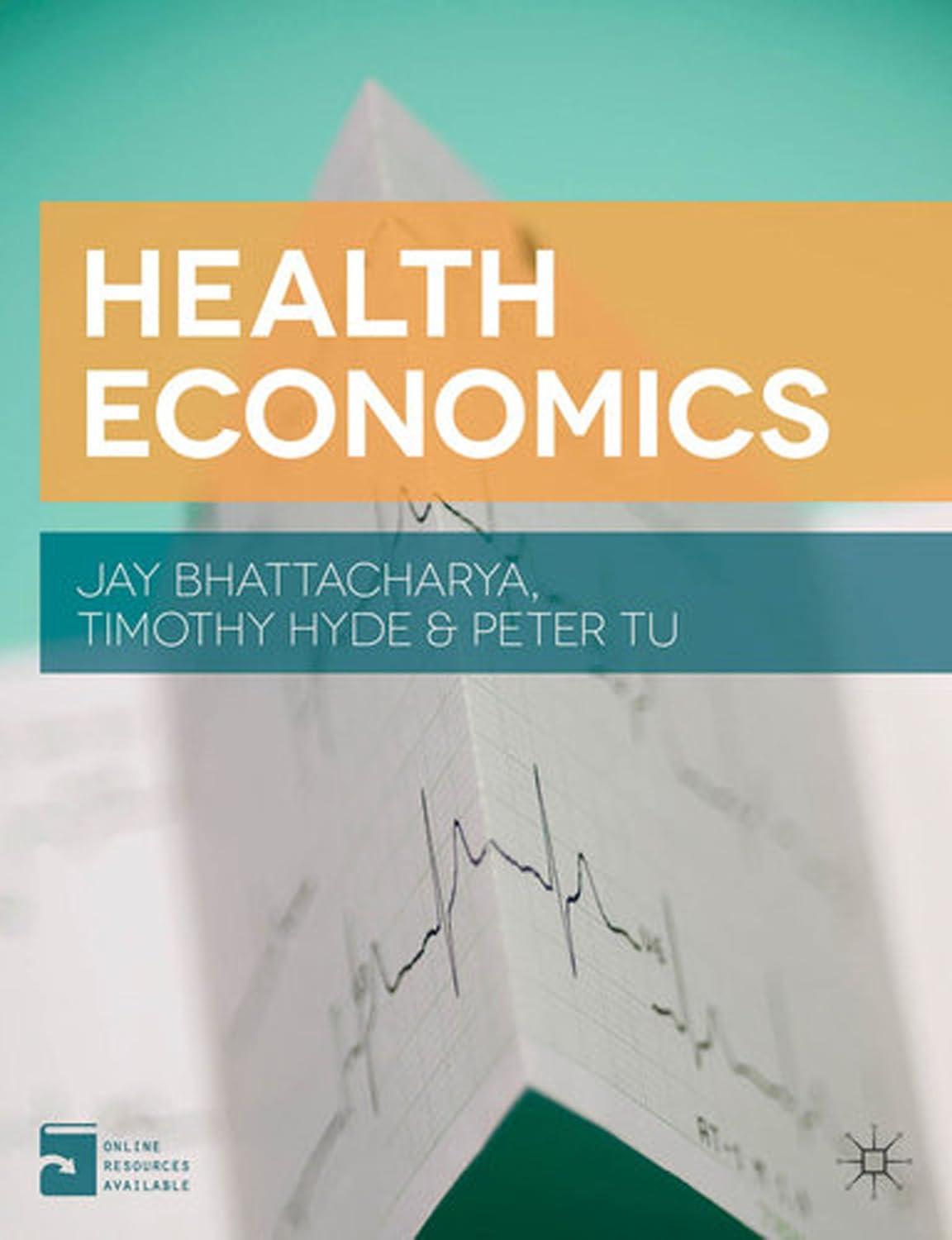Now consider a different insurance company that does not have the inclination to tailor contracts specifically to
Question:
Now consider a different insurance company that does not have the inclination to tailor contracts specifically to individuals. Instead, it will offer a “standard contract” with the premium r =$100 and payout q=$500 to anyone who will purchase it.
a. Peter has healthy-state income IH = $500 and sick-state income IS = $0. He has probability of illness p = 0.1. Is the standard contract fair and/or full for Peter? If he ends up getting sick, what will his final income be?
b. Tim has IH= $500, and IS = $0, but a probability of illness p = 0.2, higher than Peter’s. Is the standard contract fair and/or full for Tim? How does purchasing the standard contract affect Tim’s expected income?
c. Jay has IH = $1,000 and IS = $0, with probability of illness p = 0.2. Is the standard contract fair and/or full for Jay?
d. Suppose there is a customer named Ronald for whom the standard contract is partial and actuarially unfair in the insurance company’s favor. Give a set of possible values for Ronald’s IH, IS, and p. Recall that we always assume IH > IS.
e. Now suppose that we have learned that Ronald’s IS = $200, but we do not know the value of his healthy-state income, or his probability of falling ill. Derive an upper bound for p and a lower bound for IH.
f. True or false: if we assume all four individuals are risk-averse, then we know that Tim has the most to gain by taking up the contract. Justify your answer.
Step by Step Answer:






